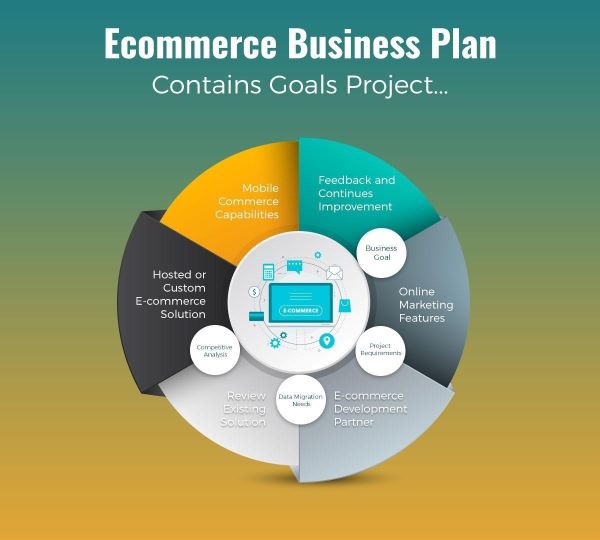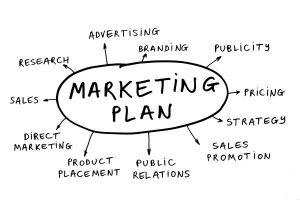Ecommerce market analytics is the most powerful element of a marketing plan. A business plan will help in all areas of an e-commerce business.
E-commerce Start-up Business Plan Market Analysis
Ecommerce market analytics is the most powerful element of a marketing plan. Think about it. You find a new product to sell, but you’re still unsure about whether there is a demand. At this point you have two choices – use your intuition or research the market to determine if there is a demand.
But let’s look at this from the perspective of creating an e-commerce business plan. If you are a small business owner who is looking to successfully grow to the next level, then you need a business plan. Even if you have a business plan, I encourage you to keep reading because you might benefit more from a few minor tweaks. If nothing else, it will get you to think more critically and open your mind to new possibilities.
Who Needs a Business Plan?
Everyone! Every single business under the sun must have a business plan if they are to be successful. Your e-commerce company is no exception. But let’s look at how a business plan will help in all areas of an e-commerce business.
- Startups: Setting clear, concise goals with an actionable plan is one of the most important steps to starting a new business.
- Fundraising: A business plan serves as an effective tool for pitching to potential investors.
- Growth: Small businesses that are looking to grow to the next level must have a business plan since it’s the only way to ensure that actionable steps are being taken toward growth.
The 6 Essential Elements of a Successful Ecommerce Business Plan
Business plans always follow a specific path and contain six essential elements.
#1: Defining the Business Model
The first step is to decide the exact type of e-commerce business model you want to go with. Although the idea is to sell products online and then ship them, the details will vary slightly from business to business. For example, one company might be using drop shipping as its primary model while others are more dependent on digital sales. Deciding what your business is going to sell is how you will define the foundation of your business plan.
#2: Defining the Operation
Once you understand what you’re going to sell, you can determine the best way to get those products or services to customers. Ecommerce market analysis is used to determine the most efficient delivery method. The overall operation of your business must be defined:
- Where will you get the products?
- How will you store them?
- How will you deliver them to customers?
A well-defined business plan will include a step-by-step process of how your company will handle all three of those major concerns.
#3: Sales Channels
What channels will you use for marketing your products or services? Again, research is essential here because small businesses do not have the resources to spend money targeting the wrong market. You must define your target market and then discover where to find them. Research firms like the Research Optimus Professionals can help you plan to ensure that you’re selling on the right channels.
#4: Marketing Strategy
A comprehensive marketing strategy starts by knowing where your audience is, but it dives much deeper than that. Businesses of all sizes must develop an actionable marketing strategy. This might be the most important element of a business plan. Decide on the exact steps you will take to market your products to the sales channels that you just defined.
#5: Income Projections
Everything we have discussed thus far is expenses, so now you’ll need to project your total income to ensure that you can budget in enough money for the plan to work. For an e-commerce business to be successful, it must price its products and services correctly.
#6: Rollouts
Businesses must continuously expand to achieve long-term success. With an e-commerce business, that means adding new products and exploring new markets. Ecommerce market analysis is how you determine what new markets that you can get into. So you need to include a detailed outline of how you will roll out into new markets or add new products.
Ecommerce Market Analysis is the Best Risk Mitigation
Risk mitigation is an area that I see so many businesses get wrong. They layout an amazing plan and follow through with it, but then the unexpected happens. These unexpected events will drive small business owners crazy! So one of the most powerful tools that research provides is the ability to plan for and mitigate these risks. Rather than being unexpected, they are now seen as possibilities, so they don’t have as negative of an impact. Risk mitigation defines two very important factors:
- Risk Identification
- Risk Controllers
Small business owners must identify potential risks and then develop ways to control the situation in case those risks come to fruition. For example, financial services are always at risk of security breaches, so they have a process in place that they fall to when a security breach occurs. Ecommerce businesses must do the same thing.
Five Steps That Startup Companies Must Follow
- Identify outside forces that can affect your overall operations. These are known as environmental forces and include political, legal, and economic changes that businesses have no control over.
- Have an overall outlook of the industry. What marketing practices have been successful and what major trends can have a profound impact on the industry.
- Form analysis of competitors to see how their products and services related to your business. Then determine how you can set your business apart from those competitors.
- Define a focused target market. Determine what demographics are going to get the most use out of your products and services.
- Project sales and keep these projections up-to-date.
Always Look to the Future
Startup businesses must keep a keen eye on the horizon is they want to grow into a successful company. Having a business plan serves as a roadmap from startup to success, but it’s your job to ensure that your business stays on that path. There are going to be obstacles that must be overcome. Sometimes the plan will need to be adjusted.
About the Author: Gracie Myers is a content writer at Research Optimus . She enjoys writing on various topics mainly associated with Research. Her famous articles are on the topic of Business Research, Market Research, Business Analytics and many more. She can be reached at: gracie.m@fwsblogger.com


























